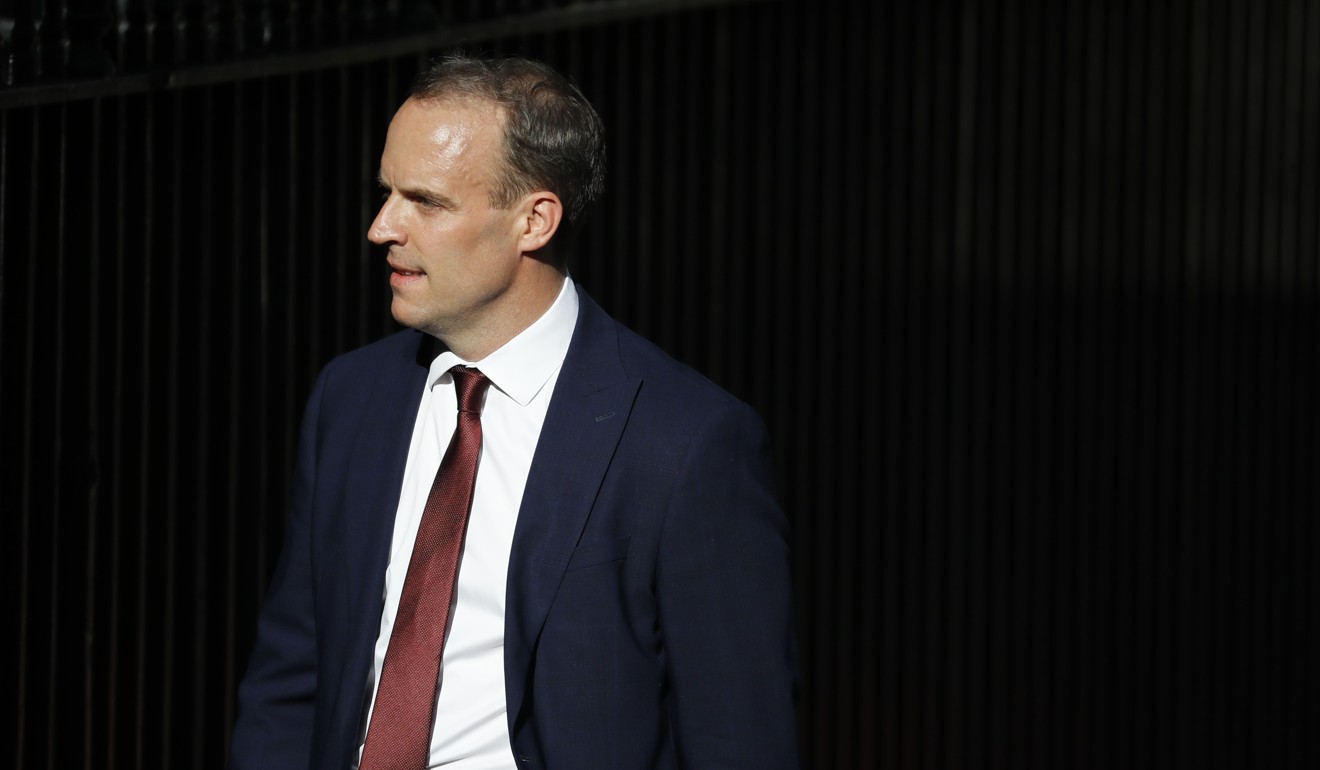
Boris Johnson’s Brexit focus could boost China trade ties as he takes over role of British prime minister, observers say
- Johnson’s first speech outside 10 Downing Street focuses on his determination to lead Britain out of the EU, not the China ‘threat’
- Declaration of interest in the Belt and Road Initiative is seen as encouraging news for Beijing
New British Prime Minister Boris Johnson’s vow on Wednesday to lead the country out of the European Union by October 31 could limit the country’s long-term economic options in Europe but ultimately build stronger trade relations with China and the US, observers said.
In his first speech outside No 10 Downing Street, Johnson, who won the race to be the Conservative Party’s leader and succeed Theresa May as prime minister, made no mention about the geopolitical threats said to be facing Europe, specifically from Russia and China.
Instead, he stressed his intention to make Britain’s exit from the EU a reality.
“I say to all the doubters: ‘Dude, we are going to energise the country, we are going to get Brexit done’,” he said.
The new leader’s decision to keep foreign policy focused on Brussels will surely please China’s leadership, which is already grappling with increasingly hawkish attitudes towards China in Washington and, at times, the European Union.
“We are very enthusiastic about the Belt and Road Initiative. We are very interested in what President Xi is doing [for the plan],” he said earlier in an interview with Hong Kong-based Phoenix TV.
Johnson, a former mayor of London, is expected to nominate Dominic Raab, the former Brexit secretary, as his foreign secretary, BBC reported.
That means Johnson’s leadership rival, Jeremy Hunt, whom Chinese media have fondly described as “China’s son-in-law” since Hunt’s wife originates from China, will lose the top job at Britain’s Foreign and Commonwealth Office.
Johnson and Hunt both angered Beijing when they talked on the campaign trail about the recent protests in Hong Kong.

China’s response was to dismiss the politicians’ notion that the Sino-British Joint Declaration – the 1984 document that paved the way for the former British colony’s handover to China in 1997 – remained effective.
Dr Yu Jie, a senior research fellow on China in the Asia-Pacific programme at Chatham House, a London-based think tank, said “the British government will always raise the issues of Hong Kong and human rights”.
“Yet, Prime Minister Johnson must embrace a sense of pragmatism” in the government’s China policy, Yu said in an interview.
China and Britain share a strong trading relationship.
In 2017, China was both Britain’s sixth-largest export market and its fourth-largest source of imports, according to statistics from the British parliament.
While running for the posts of Tory party leader and prime minister, Johnson told a Chinese television station that Britain was “enthusiastic” about China’s Belt and Road Initiative, a massive trade and infrastructure plan that seeks to link China to Europe, Asia and Africa via the old Silk Road trading routes.
He stopped short, however, of saying whether Britain would follow Italy by signing up for the programme, a signature geopolitical strategy of Chinese President Xi Jinping. Italy become the first major Western power to back the belt and road in March.
While Yu said joining the belt and road was not a high priority for the Johnson government, she expected the prime minster would “make a profit/loss calculation to see the benefits and losses of joining”.
She called for a “coherent and cross-departmental China policy” from Whitehall, noting that Johnson had developed a “reasonable relationship with China” during his term as mayor of London, and he is a “familiar face to the Chinese leadership”.
But Professor Kerry Brown, director of the Lau China Institute at King’s College London, said Johnson’s previous missteps when it came to China were a troubling omen for Sino-British ties.
“As foreign secretary he cancelled a couple of trips to the country, irritating Beijing,” Brown said. “And when questioned about Britain’s key trade partners, he seemed surprised a few months back to learn that the Netherlands and Ireland currently figure as larger than China.”
“His closeness to [US President Donald] Trump, his mercurial personality and what is perceived to be a lack of principle and consistency, do not portend promising things,” Brown said.
Under Johnson, Britain will have to walk a “careful” diplomatic line dealing with the US and China, Yu said.
“The UK and China have inherited no fundamental geopolitical disputes from the cold war nor have had any economic competition,” she said.
“There is no need to take sides as the UK and US are strategic allies, whereas China is only an economic partner which shares the ideas of free trade and World Trade Organisation reform.”

